Varieties and applications of aluminum wire
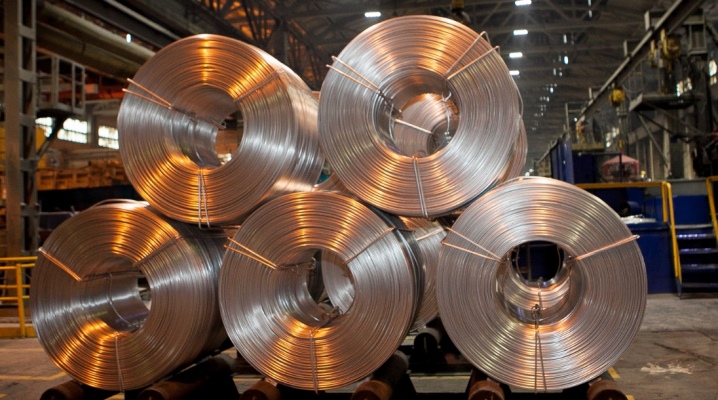
Aluminum, like its alloys, is widely used in many areas of industry. The production of wire from this metal has always been in demand, and it remains so today.
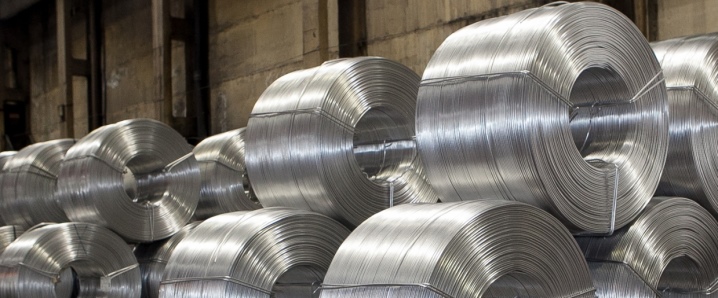
Basic properties
Aluminum wire is an elongated solid type profile that has a small length to cross-sectional area ratio. This metal product has the following characteristics:
- light weight;
- flexibility;
- strength;
- resistance to moisture;
- wear resistance;
- durability;
- weakness of magnetic properties;
- biological inertness;
- melting point 660 degrees Celsius.
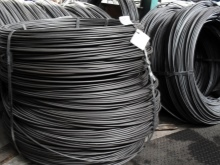
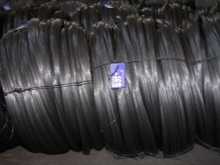
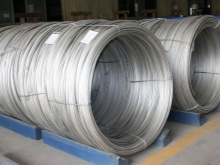
Aluminum wire, which is made in accordance with GOST, has a lot of advantages when compared with other similar products. The material is versatile and resistant to corrosion, so it is often used in cases where contact with water is inevitable. Aluminum lends itself well to processing and is completely safe for human health. The wire usually meets the requirements of the Sanitary and Epidemiological Service.
Melting of this rolled metal occurs without any difficulties. Upon contact with air, an oxide film appears on the wire, due to which the product does not rust or deteriorate over the years. The properties of aluminum wire are directly influenced by the state of the metal, as well as the production method.
Aluminum wire rod, which has a diameter of 9 to 14 millimeters, is characterized by increased strength and resistance to mechanical damage.
Obtaining can be done in three ways.
- Rolling is based on working with aluminum ingots. The manufacturing procedure is carried out on a wire rolling mill, which looks like special automated mechanisms and is provided with heating furnaces.
- Continuous casting is considered relevant if the raw material is presented in the form of a molten metal. This work involves loading liquid masses into the crystallizer. There is a cutout in a specially rotating wheel, it is cooled by water masses. When moving, crystallization of the metal occurs, which is transferred to the rolling shaft. Finished products are rolled into spools and packed in polyethylene bags.
- Pressing. This manufacturing method is considered relevant in those enterprises that have hydraulic presses. In this case, the heated ingots are sent to matrix containers. The material is processed using the pressure of the punch, which is equipped with a press washer.
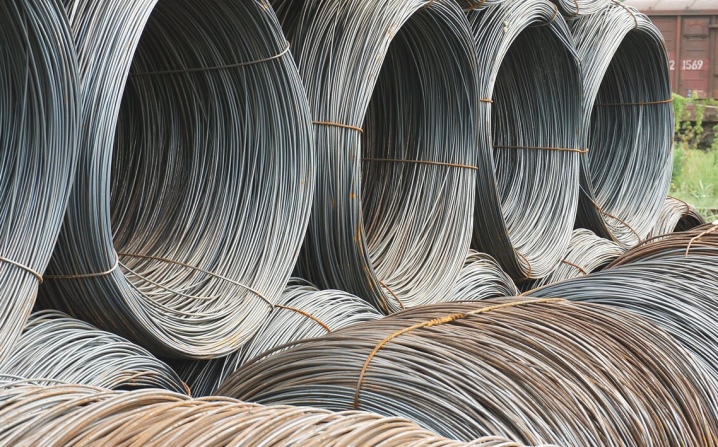
In order for aluminum wire to have high quality and performance characteristics, manufacturers perform preliminary processing:
- deformed by cold - in this way brands AD 1, AMg3, AMg5 are made;
- tempered and aged by cold - D1P, D16P, D18;
- fired, which adds plasticity to the wire;
- do abrasive processing, which helps to remove burrs, rounding of metal edges.
Aluminum wire is drawn from wire rod by drawing. To do this, take a workpiece that has a diameter of 7 to 20 millimeters and pull it with a drag, which has several holes.
If long-term storage is required, the surface oxide layer is vented by immersing the material in dissolved sulfuric acid.
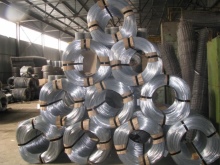
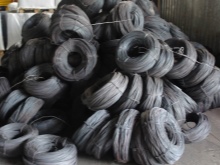
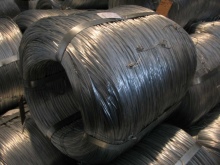
Areas of use
Long-length aluminum thread is widely used by people in various fields of their activity.It is a worthy option for manual, arc, argon and automatic welding. The seam formed after welding is able to protect the part from corrosion and deformation. Despite its low weight, this product is characterized by excellent strength, therefore it is often used in construction, as well as in the manufacture of ships, cars, aircraft.
Aluminum wire is a versatile material for fasteners. It is in demand in the manufacture of furniture, as well as such important products as springs, mesh, fittings, rivets. Hire has found its application in electrical engineering, antennas, electrodes, electrical transmission lines, communications are made from it. In addition, aluminum wire is indispensable in the food industry.
Various hardware is made from this rolled metal, even a drill, a spring and an electrode have this metal in their composition. This universal thread is indispensable in the production of parts for the chemical industry and high-tech devices. Wire is needed in the production of decorative items, jewelry and souvenirs. Aluminum wire weaving is considered a modern art form.
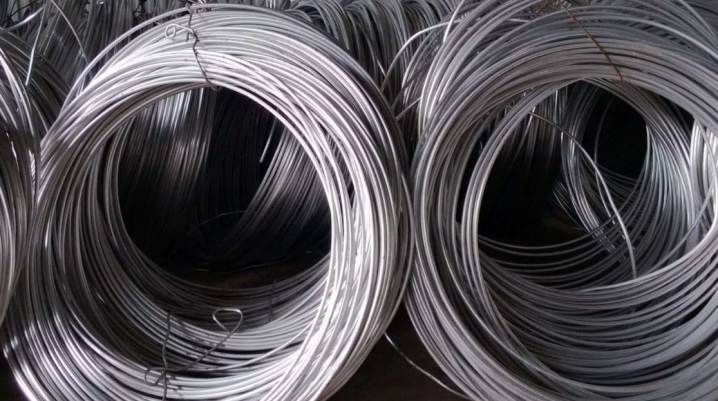
In landscape design, you can find gazebos, benches and fences made of long products. Multifunctional material provides direct assistance in the implementation of innovative scientific projects.
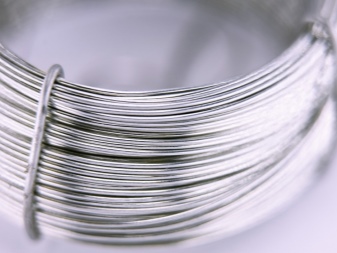
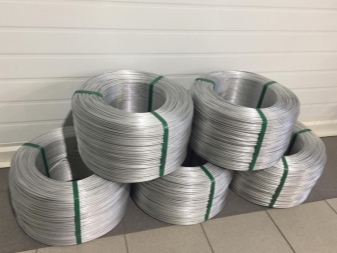
Species overview
During the manufacture of aluminum wire, manufacturers strictly adhere to the requirements of GOST. Depending on the functional characteristics, this long product can be presented in different forms. It is realized in coils or coils, the weight depends on the length and diameter of the wire.
Nominal diameter, mm | Weight 1000 meters, kg |
1 | 6,1654 |
2 | 24,662 |
3 | 55,488 |
4 | 98,646 |
5 | 154,13 |
6 | 221,95 |
7 | 302,1 |
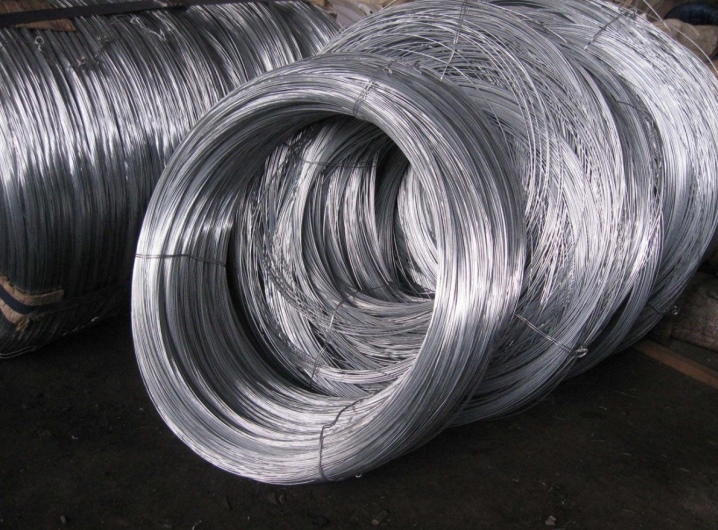
According to the condition of the material, the wire is:
- hot-pressed, without heat treatment;
- annealed, soft;
- cold-worked;
- hardened naturally or artificially aged.
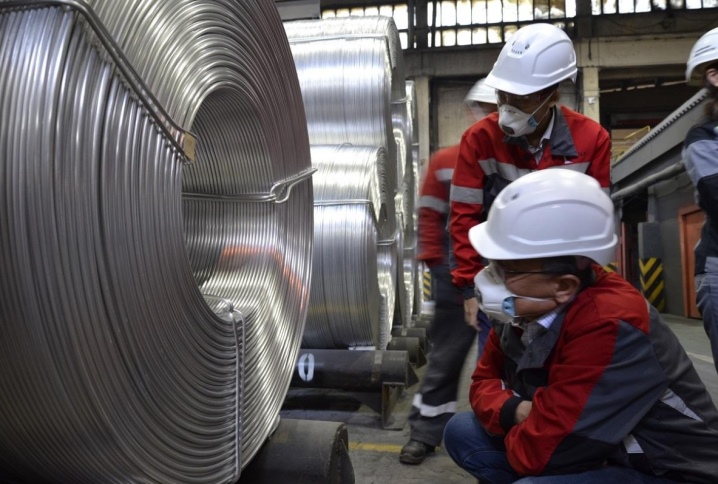
By chemical composition
Depending on the content of chemical components, aluminum wire is divided into the following types:
- low-carbon (carbon mass is not more than 0.25 percent);
- alloyed;
- highly alloyed;
- based on a household alloy.
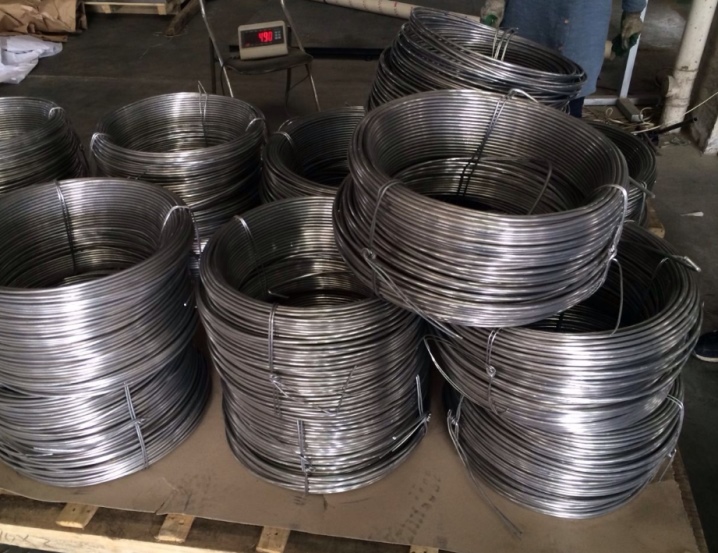
By section shape
In cross-sectional shape, aluminum wire can be:
- round, oval, square, rectangular;
- trapezoidal, multifaceted, segmental, wedge-shaped;
- zeta, x-shaped;
- with a periodic, shaped, special profile.
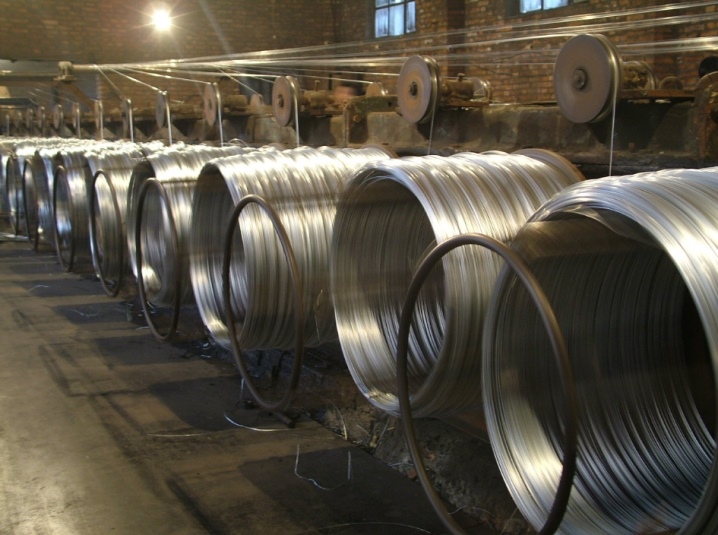
By surface type
The following types of aluminum wire can be found on the material market:
- polished;
- polished;
- etched;
- with metallic and non-metallic spraying;
- light and black.
Welding aluminum wire is used during welding in construction, mechanical engineering. Thanks to the use of this product, a high level of manufacturability of structures is observed. A product with the AD1 brand is characterized by good electrical conductivity, corrosion resistance and ductility. It contains alloying additives such as silicon, iron and zinc.
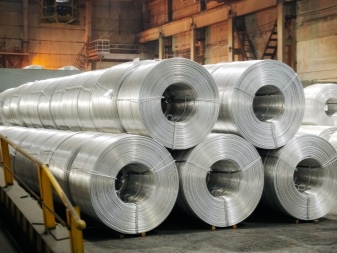
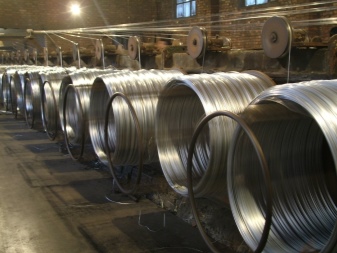
Selection Tips
It is worth choosing an aluminum welding wire with all responsibility, given its composition. The best option in this case is considered to be a highly alloyed product with additives and additives. The composition of the wire should be close to the composition of the surfaces to be welded, only in this way a reliable and durable seam will be obtained. Experts recommend not to ignore the thickness of the product, since it can be difficult to work with very thick material.
Points to watch out for when buying aluminum wire:
- purpose - usually the manufacturer indicates on the label for what purposes the product can be used;
- diameter;
- footage in a package;
- melting temperature;
- appearance - the surface of the product should not have rusty deposits, stains of paint and varnish materials, as well as oil.
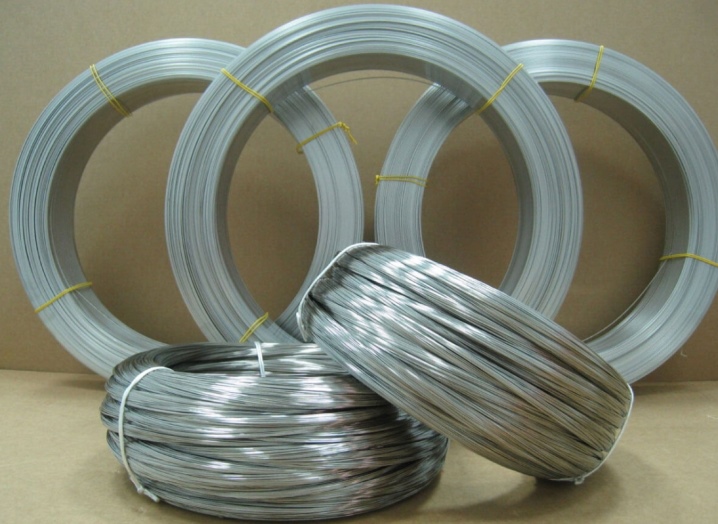
Marking
During the production of the wire, the manufacturer uses both pure material and its alloys. This process is strictly regulated by GOST 14838-78. The welding type of the wire is made in accordance with GOST 7871-75. The following alloys are used in production: AMg6, AMg5, AMg3, AK5 and AMts. According to GOST 14838-78, cold heading wire (AD1 and B65) is being manufactured.
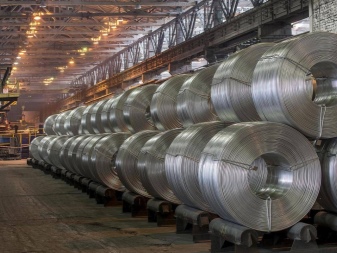
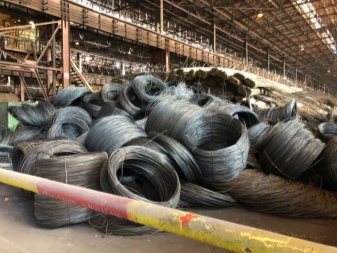
It is customary to refer to wrought alloys AMts, AMG5, AMG3, AMG6, they have anti-corrosion resistance, and also perfectly weld and lend themselves to all kinds of processing. According to GOSTs, aluminum wire is designated as follows:
- AT - solid;
- APT - semi-solid;
- AM - soft;
- ATp with increased strength.
Aluminum wire can be called a versatile multifunctional material that is used almost everywhere. When buying a quality product that is produced in accordance with GOST, the consumer can ensure a high quality of work.
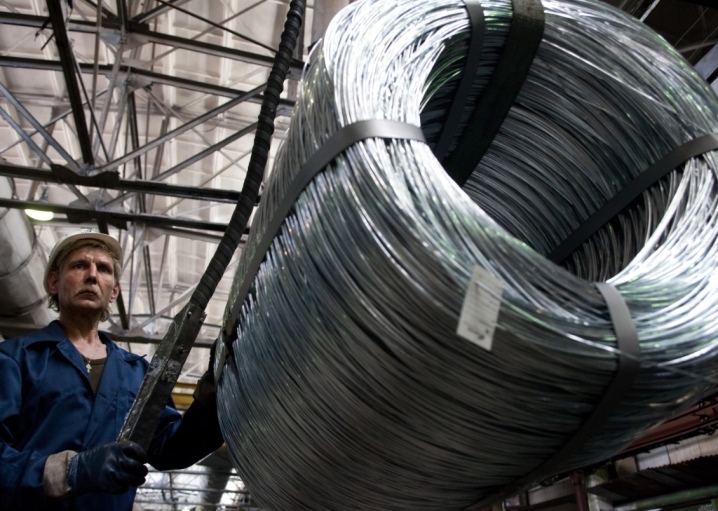
The following video shows the production of aluminum wire.













The comment was sent successfully.